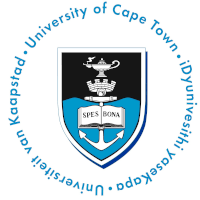About Research
The current implementation of Internet Security services leaves users, especially those with limited computing skills, out of the security decision making process. This is because the security configuration parameters are either hidden from the user or the security decisions are centralised. As a result, many users do not implement the required level of Internet security to meet the required level of quality of protection. This lack of sufficient security configuration provides a fertile environment for Internet attacks. In the cases where the ISPs implement security services, the user is not provided with the associated cost information either monetary, privacy leakage or performance degradation. Such information would enable the user to make an informed decision on the right level of security to implement so as to enjoy a good internet browsing experience. The Internet Engineering Task Force (IETF) recommends that the user should be involved in security and privacy decisions. The challenge, however, is that there are many security and privacy protocols that achieve different security goals and these differences may add extra cost to the user due to the configuration complexity overhead, leading to poor quality of experience.

Research Aims
This study aims to investgate the use of a Security Cost Decision Model to allow users with limited computing skills to easily configure security options associated with costs that can map to complex security mechanisms to achieve Confidentiality, Integrity, Availability and Privacy (CIAP). Furthermore, this study investigates a decentralised internet security configuration tool by letting users decide on the required security level based on acceptable performance and privacy costs.

Research Questions
- What is the cost of integrated secure DNS and TLS cipher suites on the Quality of Internet browsing experience?
- What security and security design attributes should be considered to develop a security-performance classification model that maps to high-level user choices?
- How would a cost-aware security configuration framework impact users' Quality of Internet browsing Experience?
- How would a cost-aware security configuration framework impact users' adoption of Internet security mechanisms?

Research Approach
- Internet Security measurements- Adoption and performance impact of integrated TLS,DoH and DoT. We use both passive and active measurements
- Generative study on the desirable design attributes of a cost-aware decision Model
- Development of a cost-aware decision Model
- Evaluative user study and lab experiments











